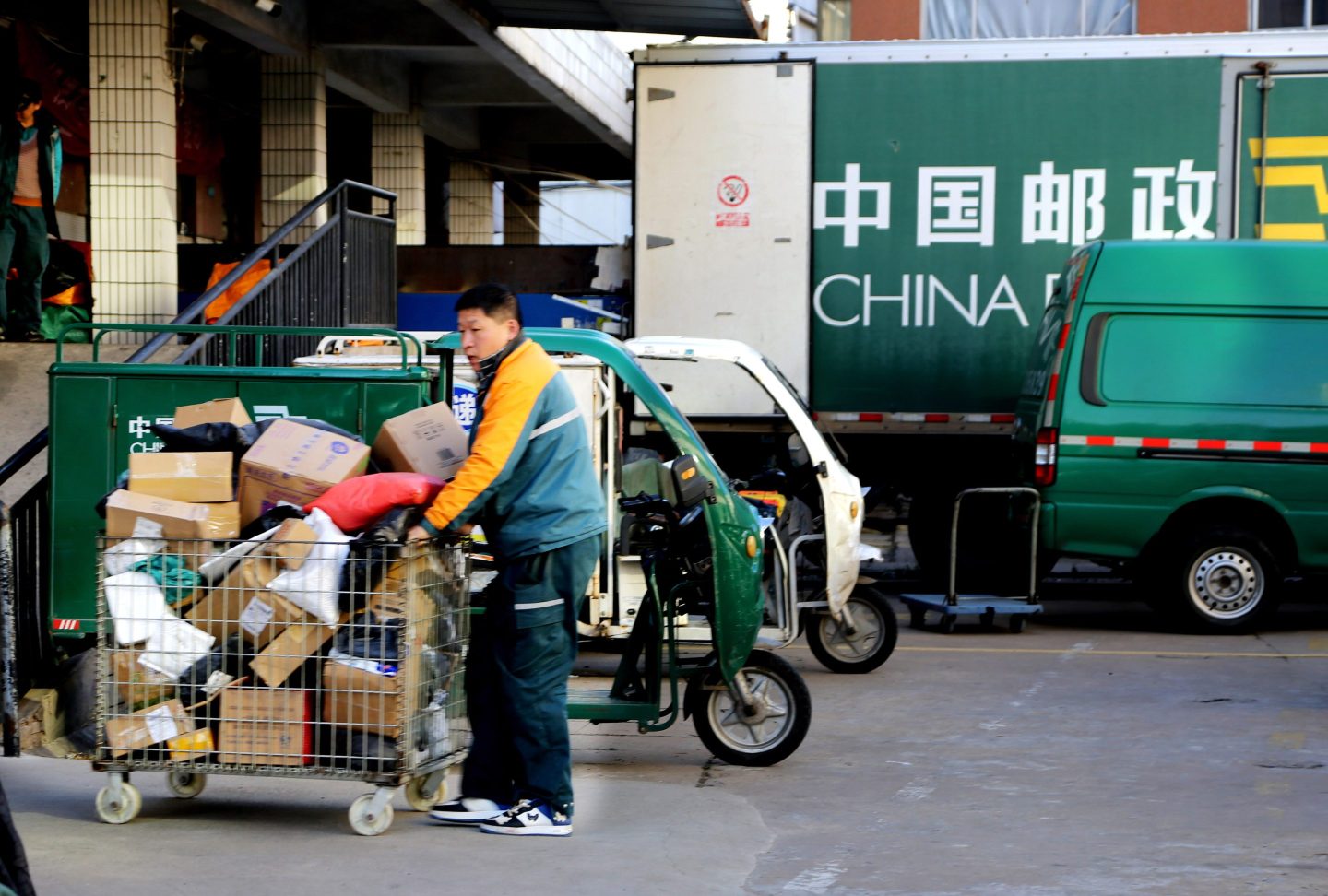For the second year in a row, China’s e-commerce behemoths are being cagey about how much they sold on Singles Day, the Chinese super-shopping festival that leaves the U.S.’s Black Friday in the dust when it comes to revenue.
Both Alibaba and JD.com reported sales growth on Sunday, but declined to give specifics nor overall revenue figures.
“In total numbers, if [Alibaba and JD are] saying that they’re continuing to make record sales and transactions, then good for them. But I think the fact that they haven’t publicly come out with any of these figures is perhaps a little bit telling,” Galvin Chia, an emerging markets strategist at NatWest, says.
The 11.11 shopping festival is traditionally a barometer for consumer sentiment in China, and the last big shopping event of the year. This year’s Singles Day is the first in the country since Beijing lifted COVID restrictions at the end of 2022, and the last chance to see a hoped-for post-pandemic rebound in consumer spending. A small growth in sales for this year’s Singles Day would mean that China’s consumption recovery is still a long way off.
Alibaba reported positive year-on-year growth in gross merchandise value, number of orders, and participating merchants on its platforms Taobao and Tmall, without giving specifics. The company also said over four hundred brands surpassed 100 million Chinese renminbi ($13.7 million) in gross merchandise value by midnight, Nov. 11. JD.com said that over 60 brands surpassed 1 billion Chinese renminbi ($137 million) in transaction volume.
Chinese delivery companies handled over 5.3 billion packages in the first 11 days of November, a 23% increase year-on-year, according to official data.
Newcomers to Singles Day may have done better. Chinese livestreaming platform Kuaishou reported 50% year-on-year growth in orders made on its platform. Services like Kuaishou and Douyin—ByteDance’s version of TikTok for the Chinese market—have become new shopping hubs as streamers hock new products to their audience.
Singles Day got its start as an informal alternative to Valentine’s Day, where single friends would gather for food and drinks. Yet Chinese e-commerce firms latched onto the day to sell deeply discounted goods. Now, the shopping festival spans weeks. This year’s sales on JD.com started Oct. 23, and Alibaba a day later.
A sluggish Singles Day would follow other disappointing consumption data, like weaker-than-expected travel during the National Day Golden Week holiday in early October. Chinese consumers are slow to return to pre-pandemic spending levels, putting pressure on both Chinese and foreign companies who normally rely on the country’s middle-class for their revenue.
A youth joblessness crisis could also be weighing on spending. “Most consumers, especially younger ones—those that are more tempted by impulse purchases—have been affected by a labor market that is quite weak,” Erica Tay, director of macro research for Maybank, says. Unemployment among those aged 16 to 24 hit a record high of 21% in June, the last month on record before China’s statistics bureau stopped using the measure.
Around 77% of Chinese consumers were planning to spend the same or less this Singles Day compared to previous years, according to a report from consulting firm Bain released ahead of the shopping festival. The firm said the underlying trend this year was a “flight to value” among consumers.
Tay added that online retailers have tried to match a more “austere” mood among consumers, offering more discounts in the lead-up to this year’s Singles Day. Consumers are now more goal-oriented and less impulse-driven, she suggests: Shoppers know what they want out of Singles Day, and don’t want to buy much beyond that.
Changing consumers, changing companies
Executives speaking at Coins2Day China’ s Global 500 Summit in Guangzhou on Oct. 12 shared how they were reacting to China’s new consumption market.
Chinese consumers are shifting to buy different kinds of products. “Pet food is increasing really fast,” David Zhang, Nestle’s Greater China CEO, said, as more so-called double-income, no kids households embrace keeping pets. Zhang noted that Nestle’s status as a large, diversified company was helping it withstand these changes in demand.
The hit to consumer confidence is also pushing Chinese consumers to seek more value from a product or service, Larry Feng, president of Mars Wrigley China, said. “We have to be down to earth,” he suggested. “Price is different from value.”
Is China’s consumption coming back?
China’s retail sales in September rose 5.5% year-on-year, a larger jump than expected by economists. The country’s national statistics bureau will report retail sales for October on Wednesday.
Tay predicts China’s sales numbers will increase over the course of next year, but no single event is going to produce the big bounce that many are hoping for. Tepid consumer sentiment will stick around amid uncertainty in the housing and labor markets.
Chia, the analyst from NatWest, agrees. “Everyone’s waiting for this consumption boom, consumption revival,” he says. “I don’t think it’s really going to come.”












